Even for those who know what to expect, it can be a shock to pull into the driveway of Morsey’s Farm in Wilton and see hundreds of Asian water buffalo perking up and staring through the car windows. “They’re very curious and super smart, with different personalities,” says Yulia Morsey, giving a tour of the 25-acre farm founded by her husband, Kal Morsey.
It’s surprising to see the curly-horned farm animals in California. Originating on the Indian subcontinent and Southeast Asia, they’ve also been domesticated for thousands of years in China and the Mediterranean basin. There are millions of Asian water buffalo around the world, but only a few thousand in the United States. They populate fewer than 20 water buffalo dairies in the nation, with three, including Morsey’s, in Northern California.
But the population is growing as more consumers discover the rich flavor and silken texture of water buffalo cheese and gelato. “The milk is still the queen of the castle, because that’s what everything else is made from,” Yulia says. Water buffalo milk has 68 percent more calcium and 40 percent more protein than cow’s milk, according to the American Water Buffalo Association. Even though it has more fat, it has less cholesterol.
The buffalo are curious, super smart and have different
personalities,” says co-owner Yulia Morsey. “The minute they see
me, it’s like, ‘Mom’s here!’”
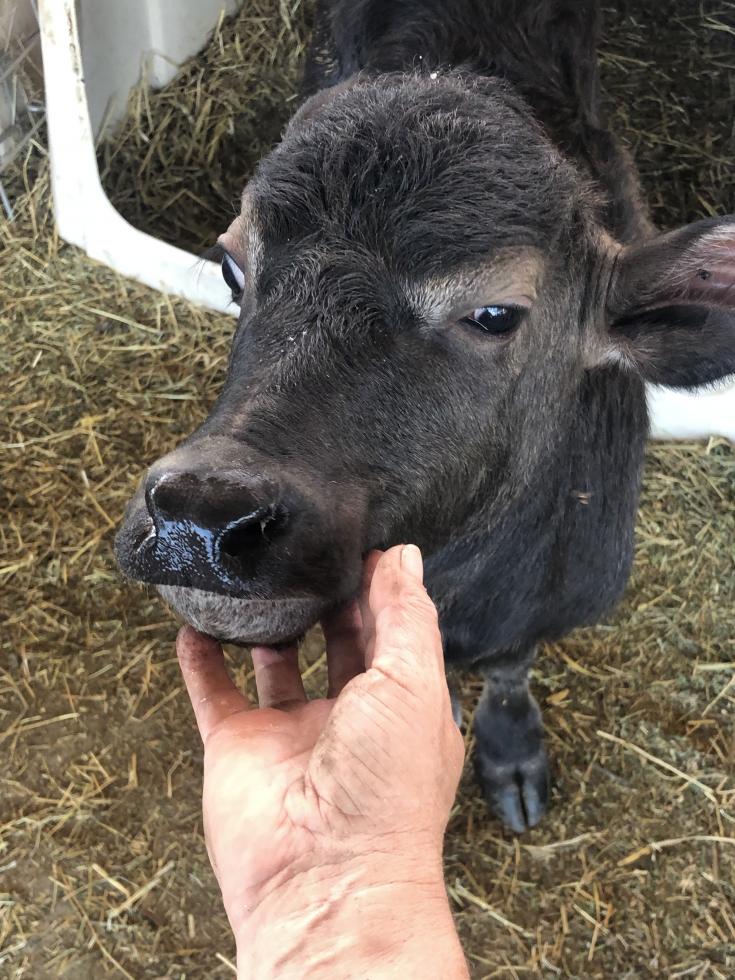
When they’re not grazing, the buffaloes are held in a series of corrals, depending on their purpose. One holds females used for breeding, another is filled with gamboling heifers (females too young to bear calves). “Those are our future,” Yulia says.
As she passes by one corral, 20 or so buffalo spot Yulia and trot over to the fence, crowding in to lick her hands and be petted. “The minute they see me, it’s like, ‘Mom is here!” she says, laughing.
The main herd gathers in a massive covered corral behind the building that doubles as a milking station and packaging center. A massive bull named Theo — easily weighing a ton — ambles to the fence to have his snout rubbed. “They’re like golden retrievers,” Yulia says.
An Ancient Food Is New Again
Water buffalo have been domesticated for thousands of years in
Southeast Asia, China and the Mediterranean Basis. Their milk is
highly prized, as is their endurance as draft animals.
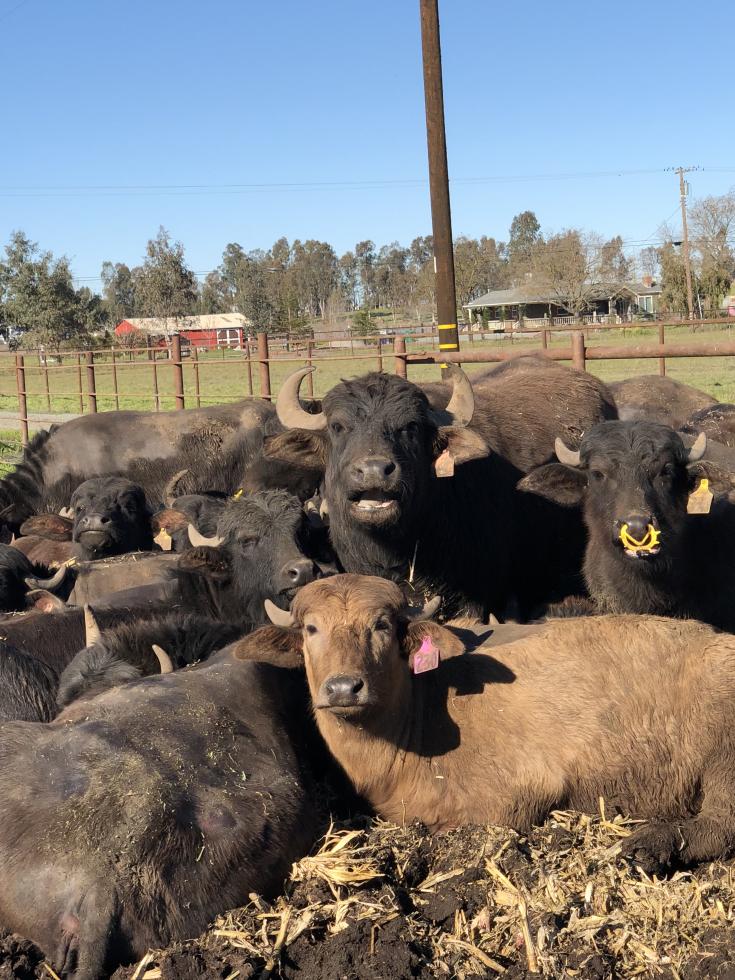
The next step was turning to specialists at UC Davis. “With their help, we formed a breeding program that produced most of the buffalo you see here today,” Kal says. “We’re on the fourth cycle of insemination, breeding a very good Italian line.”
In the early years, the Morseys couldn’t produce enough milk to make its cheeses and gelato for wide distribution. Herd size was one issue, coupled with limited milk productions. “Water buffalo produce only two gallons a day, compared to 11 to 15 for cows,” Kal says.
Still, they had to get the word out. For years, Yulia did all the marketing — she drove from grocery store to grocery store between the Capital Region and the Bay Area with samples and spent weekends at farmers markets promoting the products. “Since the first day, customer feedback has been amazing,” Kal says. “How can anybody beat mozzarella made fresh today and eaten tomorrow?”
To further cultivate public exposure to a product unknown to most Americans, they opened Morsey’s Farmhouse restaurant in Los Altos in 2018, followed by Morsey’s Creamery in Palo Alto the next year. The creamery specializes in gelato but offers the full range of Morsey’s products for sale. The pandemic brought closures to both, though the creamery — the only buffalo milk-based gelateria in the U.S. — has reopened. The restaurant is still on hold.
Morsey’s Creamery opened in 2019 in Palo Alto as the only buffalo
milk-based gelateria in the U.S. It sells 29 flavors of gelato,
along with milk and cheese.
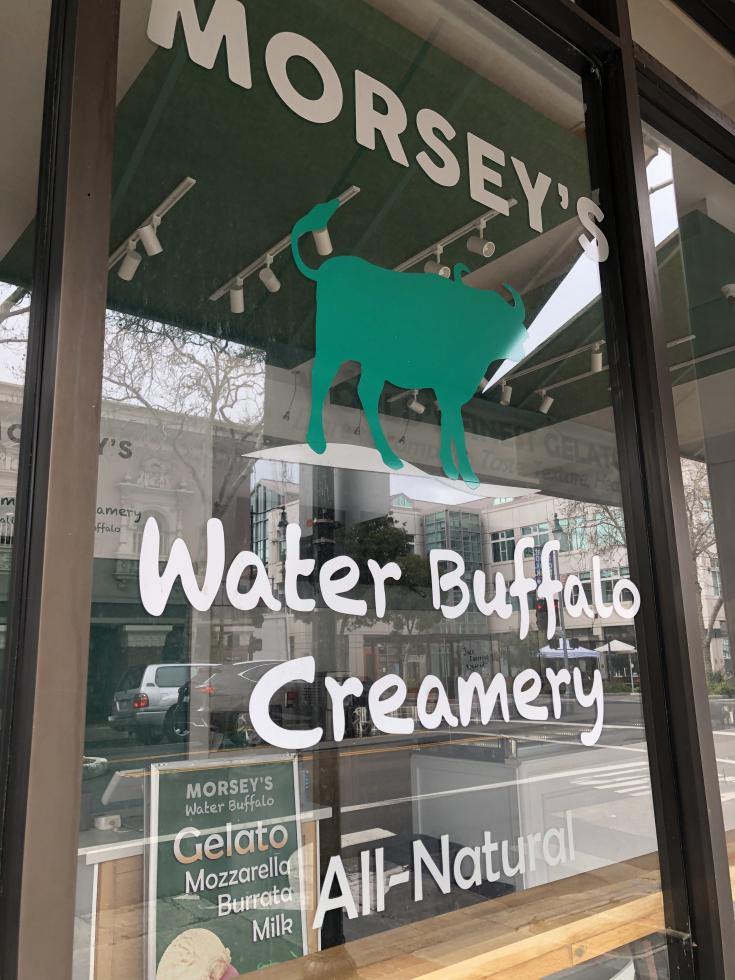
Corti Bros. was the first in Sacramento to carry the line. Store director Rick Mindermann recalled the initial tasting that he and store owner and food and wine authority Darrell Corti held: “I was amazed. But you could say of Darrell, ‘Here’s a man who’s tasted it all,’ and when he reacts that positively to a product, it’s really something special.”
The mozzarella di bufala is the bestseller. “Everybody who’s tried it has raved, but the biggest indicator is that it’s selling again and again,” Mindermann says. “People are coming back for it.”
‘I Believe in These Animals’
Kal and Yulia had no farming experience when they opened Morsey’s. “Our backgrounds aren’t even close to what we’re doing now. Our lives have turned upside down,” Yulia says.
Kal emigrated from Alexandria, Egypt, in 1978, earned an MBA from New York University and became an international commodities trader specializing in cotton. Yulia has a Ph.D. in neuropsychology from St. Petersburg University in her native Russia. They’ve lived in London, Moscow, Cairo and Dubai and traveled through many other countries.
“I grew up on water buffalo (products) in Egypt,” Kal says. “I would go to Europe and South America, and the taste was not the same, the luxury was not there. I’d go back to Egypt and the taste was amazing. It stayed in the back of my mind all these years.”
After tasting water buffalo ice cream in Pakistan, which he deemed “as good as I got in Egypt,” he discovered the difference was the quality of the milk, linked to the animals’ diets. “I decided when I retired from the cotton business, I would look into making a buffalo farm. That’s how it started,” Kal says.
Now, eight years after the first animals came to the farm, the Morseys are poised to expand to new markets and initiate new consumers. “We want to bring to Americans something they are not aware of, and the dairy industry needs this addition,” Kal says. “It makes me very proud to take the risk and give it a shot. I believe in these animals, and their products deserve a chance.”
–
Stay up to date on business in the Capital Region: Subscribe to the Comstock’s newsletter today.
Recommended For You
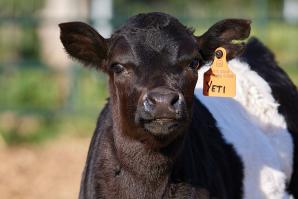
Greener Pastures
Long Dream Farm aims to prove that dairy production can be both ethical and economically viable
Andrew and Krista Abrahams want to rethink the assumptions of traditional dairy production.

Startup of the Month: TurtleTree
Business grows cells to create milk and milk ingredients
Milk may do the body good, as the 1980s campaign stated, but Fengru Lin, cofounder and CEO of TurtleTree, believes milk production without cows could do the planet even better.
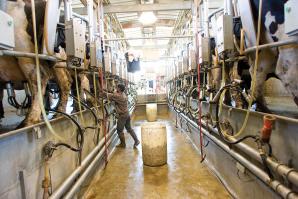
Milking Profits
Can the state's dairy industry make happy cows profitable?
Wearing coveralls and galoshes caked in manure and mud, a father and son attach suction devices to the teats of ailing cows.
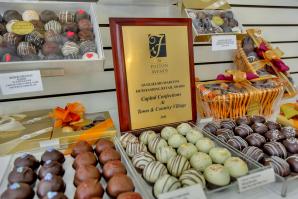
Sweet Taste of Success
How Capital Confections thrived through the unexpected
When they opened Capital Confections, a small business
specializing in handcrafted chocolates, more than 24 years
ago, husband-and-wife partners Teresa and Craig Higgins knew to
expect the unexpected.



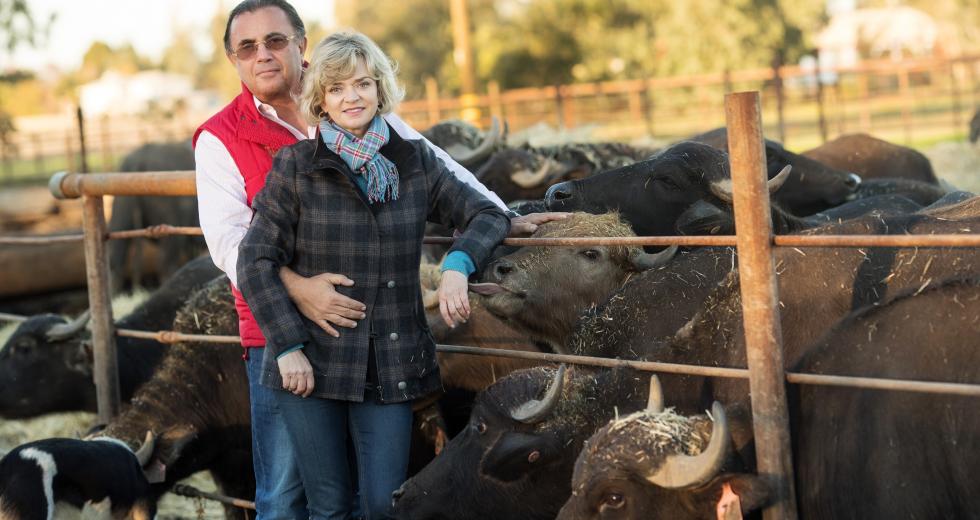
Comments
Great article. I am going to have get some of their products at Corti’s and give them a try.